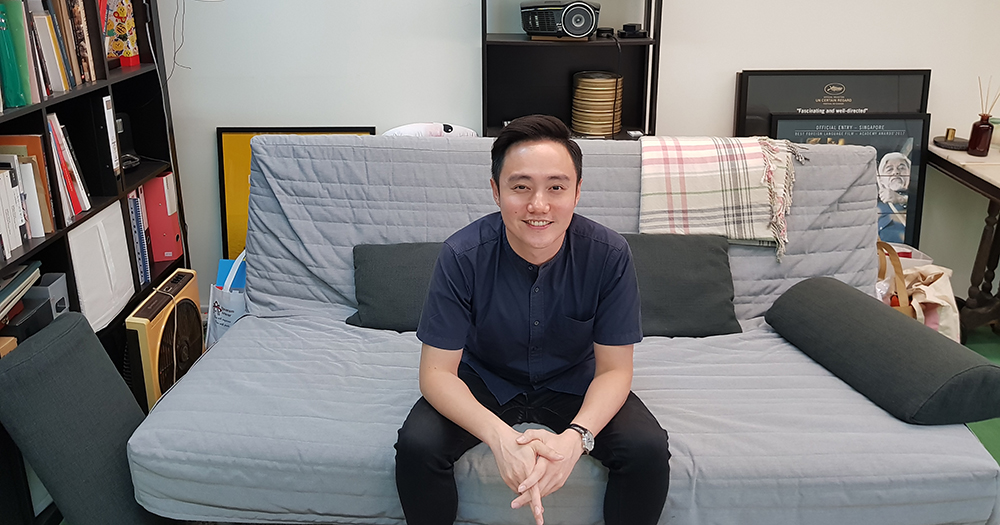Think of prominent filmmakers in Singapore today, and chances are Boo Junfeng's name would be among the first that come to mind.
But like most content producers and creatives, Boo appears to generally prefer to let his work shine brighter than his name, opting to avoid the spotlight where possible.
Or at least that's the impression we had — in most interviews he has done before, the 35-year-old has always seemed like a soft-spoken person who is generally cautious and measured with what he says.
A stark departure, one may initially think, from the daring narratives he takes on in his films — "Apprentice", which tackles the death penalty, "Sandcastle", with its examination of Singapore's national identity, and "Tanjong Rhu", which looks into the incident where local gay men were rounded up on a beach in the 1990s, just to name three.
And so perhaps, one may infer that's how he expresses his views on issues — through the subtle medium of these compelling stories he tells in his films.
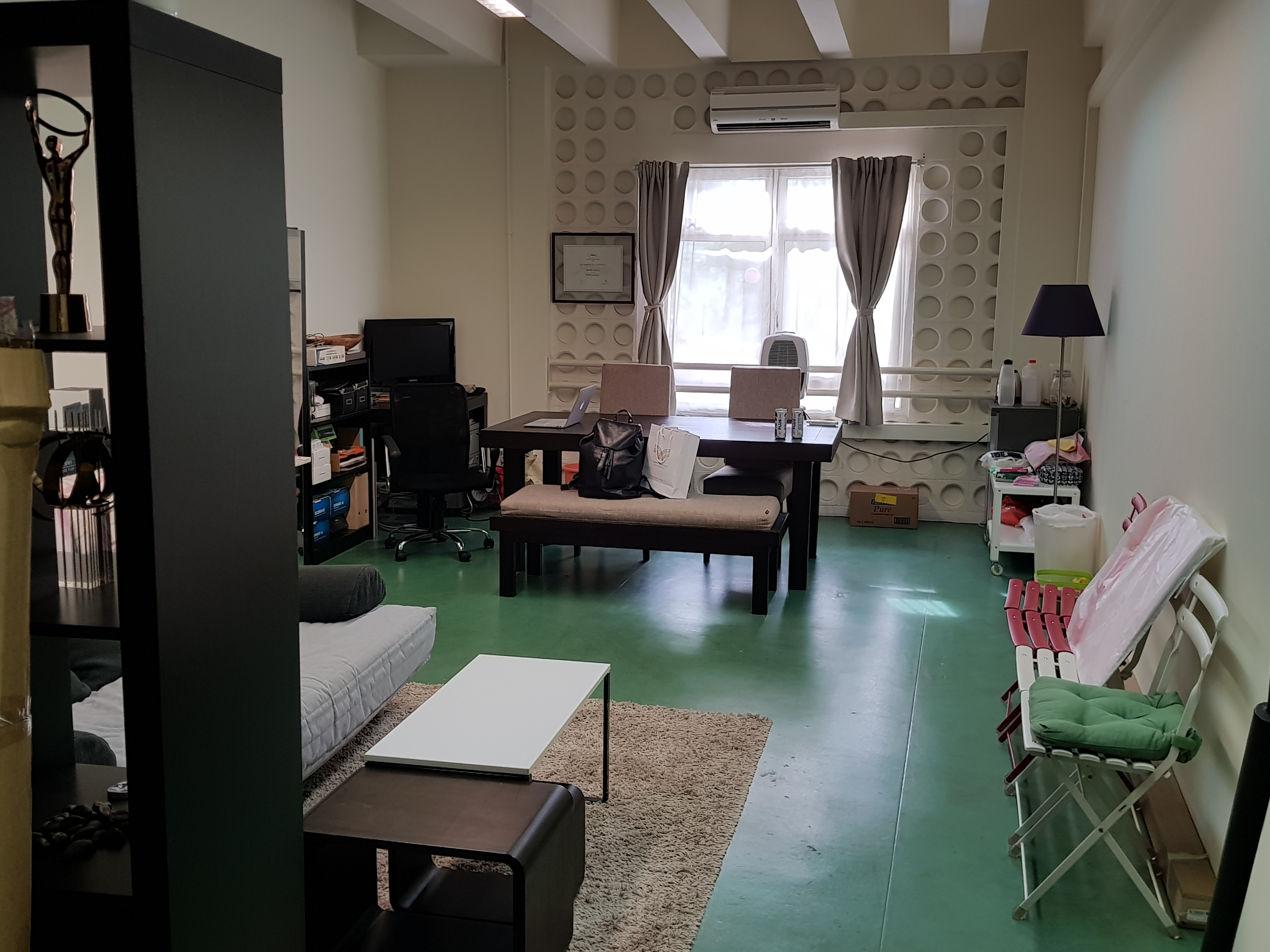 Photo by Matthias Ang
Photo by Matthias Ang
But seriousness, intensity and grimness in his films aside, boy were we surprised to hear some of the serendipitous, funny and sentimental stories he shared with us when we visited him at his cozy, homely studio (a place he says he uses "to store stuff") recently, all of which lay behind an unassuming door at Goodman Arts Centre.
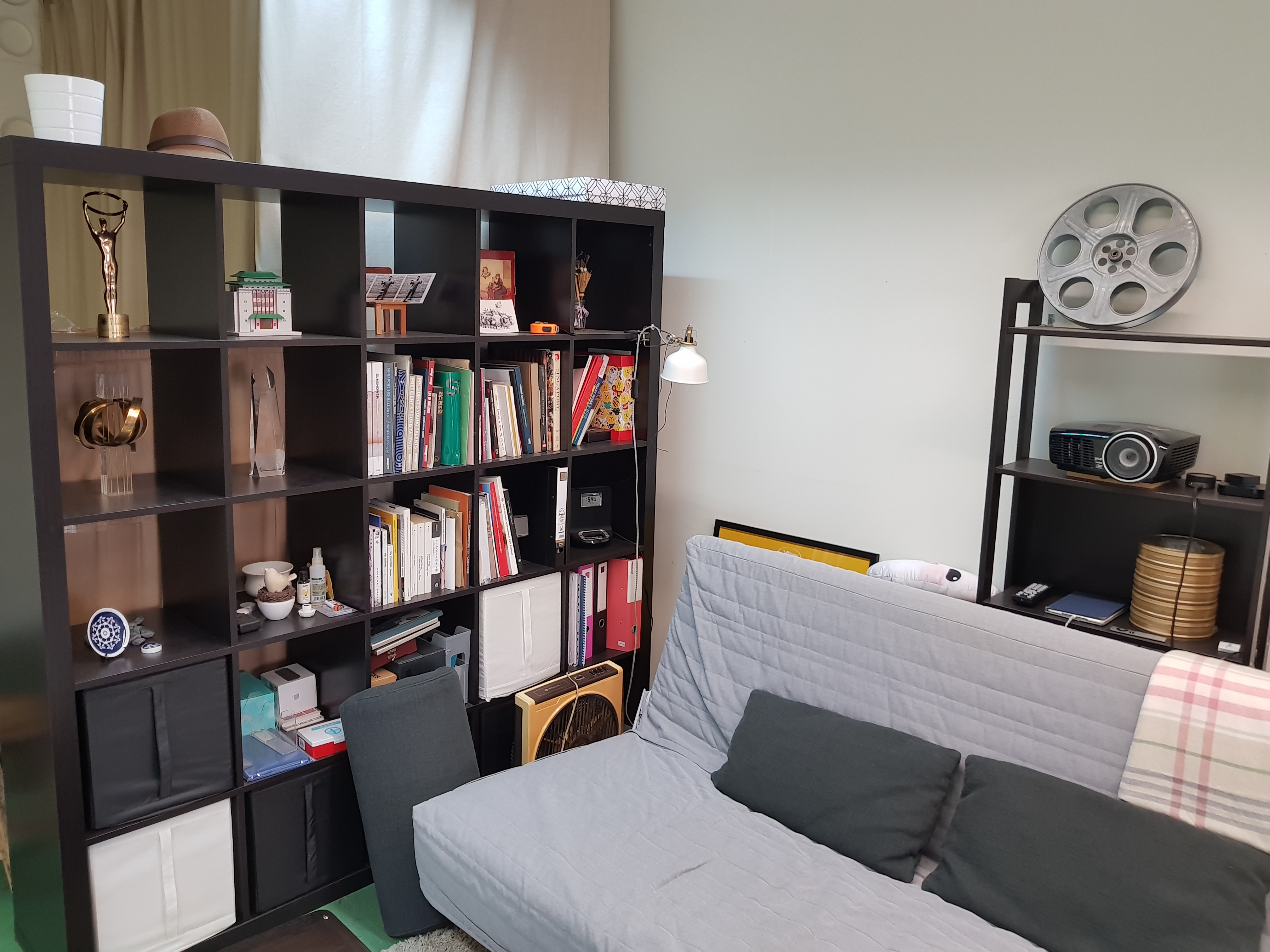 Photo by Matthias Ang
Photo by Matthias Ang
A life-changing blessing in disguise
Take, for instance, how he got into film in the first place — at 16, a Preliminary examination aggregate score of 22 points put paid to the idea of going to junior college. When Boo learned about the existence of a film school at Ngee Ann Polytechnic, however, he set his sights and a renewed energy (that seemed otherwise dormant within him) on it — the first school-related thing he felt excited about in years.
So determined he was to go to film school that he rebuffed his mother's attempts at nudging him to choose a "decent" JC when he eventually surprised all his teachers with a 10-point score at his O-Levels, and he would go on to top his class consistently from his very first semester at Ngee Ann.
"To my parents, that meant everything. To me, I suddenly felt that I really enjoyed going to school, I really wanted to go to class. Even some of the subjects that some of my friends didn’t really care much about, I liked them also. I just really liked being there. And that was where my parents saw a huge difference in my attitude to learning, my motivation."
It was such a 180-switch on his part that even his parents were surprised, despite their awareness of where Boo's interest lay.
"I don’t think they saw that spark in me before that — they knew I was always a little bit more artistically inclined but I don’t think they saw how much this leap would have taken me."
Looking back, he says it was the best decision he ever made — and, as we now know, one that made one of our brightest stars in Singapore's filmmaking industry.
Stories of his cheeky youth
Watching R(A) films on pirated VCDs
Boo also tells us about how he nurtured his lifelong love for film — in his secondary years at Chung Cheng High School, he was completely uninterested in whatever he was supposed to be learning.
"I was like 'What’s the point, what’s the point of studying this, going so in-depth into all these things?' It just all felt very boring to me? I just wasn’t very motivated."
Instead, he would traipse down to a "shop" (that he hopes no longer exists) at Katong Shopping Centre to procure films he was too young to be watching:
"Every time I go, I felt like I was leaving a crime scene because of the films there, you know, that I wasn’t supposed to be able to get my hands on but I really really wanted to see them."
Obviously, though, the illegality of these VCDs (yes, VCDs, remember them?) worked for him — a happy quid pro quo arrangement he silently had with them.
And so, the teen savoured "The English Patient", "American Beauty", and of course, greats like Francis Ford Coppola's "Apocalypse Now" — need we mention "The Godfather"? — and Martin Scorsese's "Raging Bull" and "Taxi Driver". Very American, and very R(A) (what the R21 rating used to be, if you are old enough to remember).
He would subsequently become exposed to "world cinema" — a phrase he hates because it's a catch-all for anything not made in America — and in school, relished the opportunity to take out uncensored DVDs from the Ngee Ann video library and discovered films from Iran, Europe, and of course Asia — the works of Yasujirō Ozu, and the Taiwanese New Wave in the 1980s, by Edward Yang and Hou Hsiao-hsien, just to name a few of his favourites.
Made first film in Spain, "a film that I didn't think I would make in Singapore"
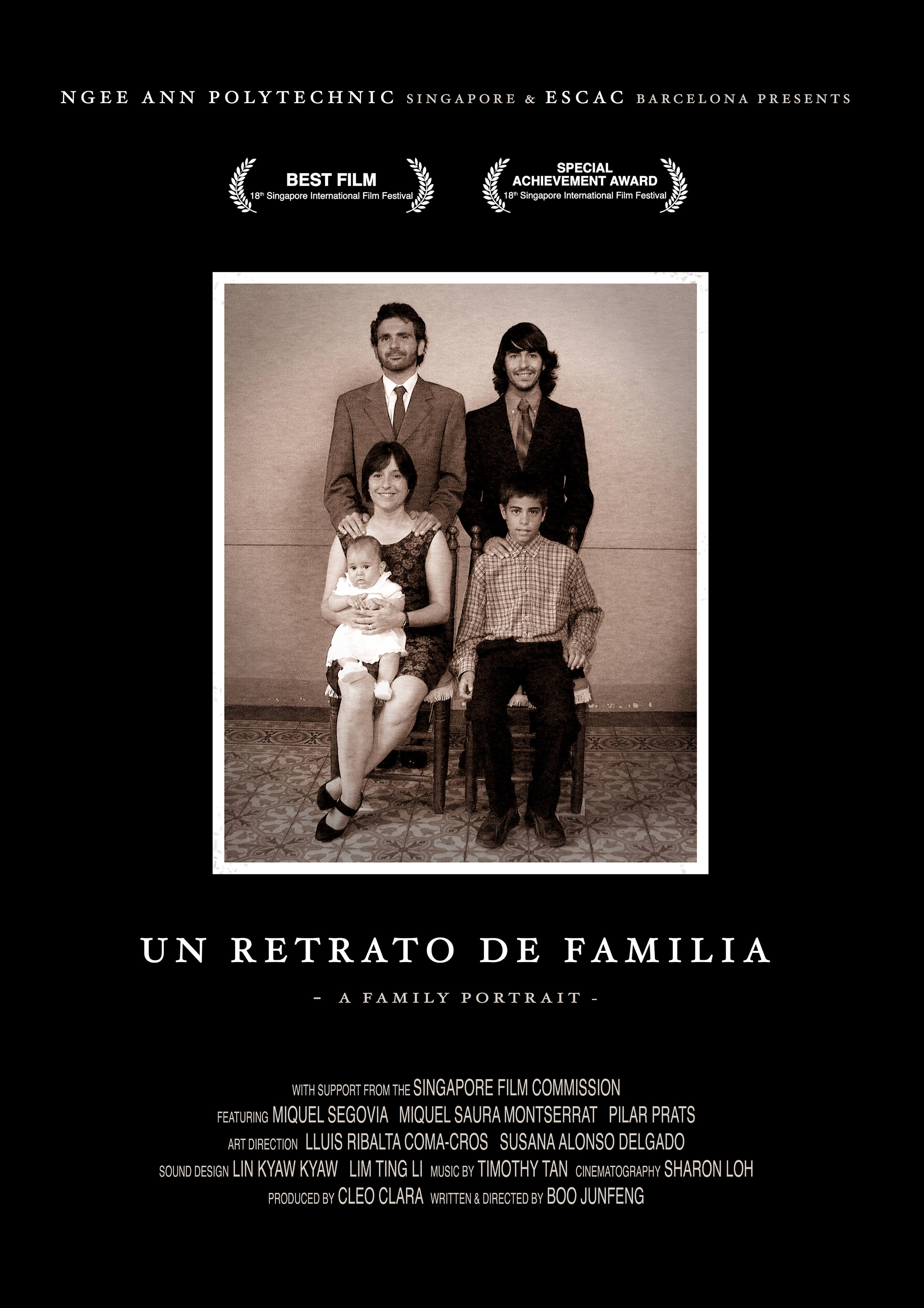
Boo talks about the first film he directed — a Spanish-language short called "A Family Portrait" — which he directed as a 19-year-old final-year student on exchange in Barcelona.
He spent six months studying Spanish to prepare himself for classes at the prestigious Cinema and Audiovisual School of Catalonia, until he got there to discover the local language used was Catalan (totally different from Spanish — in fact it's closer to French and Italian).
But anyway, he tells us he learned a lot — how to do laundry, how to cook his own meals, a bit of Catalan, just to name a few — and got the chance to shoot in 35mm film, which was really expensive and a privilege only extended to final-year students.
Over there, he also had the luxury of local professional actors willing to appear in student films made at the school for free.
So in line with his aim of making something that was "culturally authentic to what (he) was experiencing there", and also "a film that (he) didn't think (he) would make in Singapore", he told a story of a young man who is asked by his little sister, "What is sex?"
Of course, it involved sex scenes, which he reckoned Singaporean actors may be a bit more reluctant to appear in too. He explains, with a grin:
"So I wanted it all to be a part of my very innocent cultural experience in Spain."
Disappointed that he wasn't banned from watching his own film
Boo then came back and edited the film during his days off from National Service, and when he was done, he wasn't sure what to do next.
"For me, it was a very innocent endeavour also, I just wanted people to watch it. I finished this film, I don’t know who wants to see it, how do I get people to see it?"
And that's how he found out about the Singapore International Film Festival (SGIFF). Boo sent his first two shorts, that and one called "Stranger" that he made with his friend Adrian Tan, to its 18th edition for competition. To his shock, "A Family Portrait" won the Best Short Film and the Special Achievement awards.
"Suddenly, I became a filmmaker. Before that, I just had this film and I didn’t know who would want to see it. So that made a huge impact."
It was also there he suffered one of his first personal career disappointments: "A Family Portrait" was given an M18 instead of an R21 rating by the then-Media Development Authority.
"I secretly hoped it would be rated R21 so that I can say I can’t watch my own film."
His first film festival experience
Now, of course, don't get the idea that Boo intends to knock the SGIFF. The homegrown festival means so much to him that he continues to be actively involved today, and it also has a special place in his heart, especially his first time there.
"I was like in army right? I had to get leave to attend the silver screen awards and it was totally like... Didn’t own a suit, borrowed my dad’s suit to wear, which was obviously grossly oversized, didn’t even have leather shoes. Wait did I? I think I probably had leather shoes like my army no. 3 shoes or something.
But yeah, it was huge for me, to be able to win those awards, and that’s a large part of why I’m constantly trying to give back to the SGIFF. Because I know the impact that it’s had on me and I wish that upon any young deserving filmmaker.
Because I think that just the appreciation, even without winning the awards, of being given a space and a full house of people who actually want to come and watch your film — and you are like a nobody right? Nobody knows who you are. But they are really just there to be able to watch films and discover films, to explore things that they haven’t seen before, filmmakers that they haven’t heard before.
So, I really, really appreciated that experience of just being able to show it to a room full of discerning people and of course, then later on, to be recognised with awards for the film, made it very very special for me."
From award-winning shorts to award-winning features to NDP
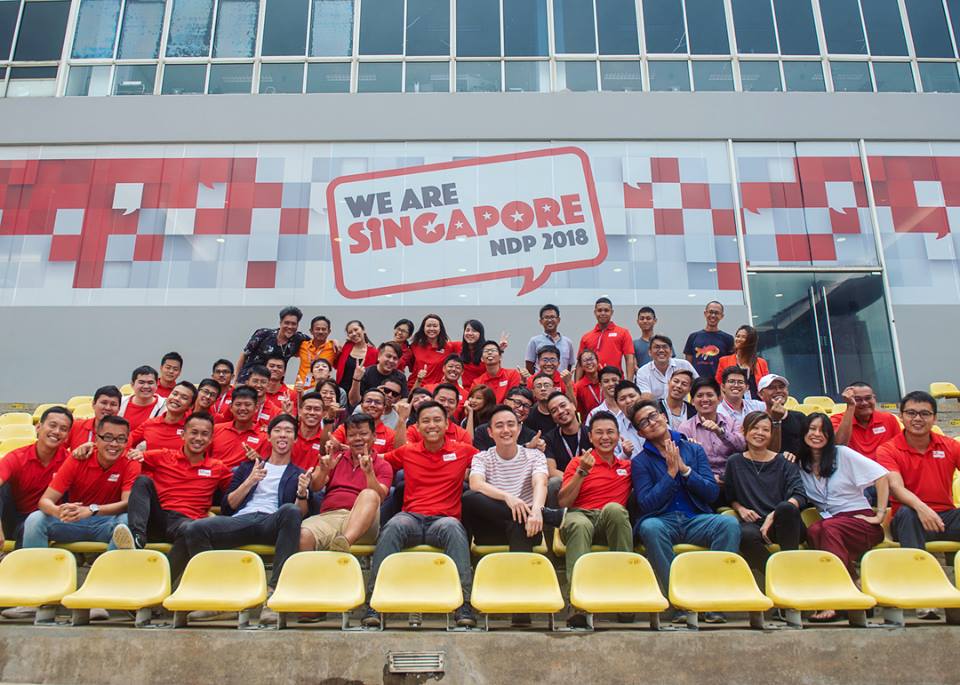 Photo via Boo Junfeng's Facebook page
Photo via Boo Junfeng's Facebook page
Boo has had a remarkable trajectory as a filmmaker, marked by his repeated successes at the box office with his feature films (on which from his first project, "Sandcastle", he was executive-produced by Eric Khoo and then-heavyweight brand Fortissimo Films), prominent work for the Pink Dot campaigns and most recently, running the entire show at the 2018 National Day Parade.
That, by the way, is quite a story too — Boo was never one who got into trouble with the government for his work or with censorship issues, but when he was first informed that he had been selected as the Creative Director, a role typically taken by legends like Dick Lee and Ivan Heng, the first thing he did was to ask the executive committee:
"Can I just double-check you are asking me to be the Creative Director?"
The nice thing is, even looking back, Boo says he enjoyed working on the mammoth project, a big step up from 2010, 2014 and 2015, where he helped out as Film & Multimedia Director, and that it was a "by and large quite smooth" experience.
In fact, contrary to expectation that the high-ranking military men sitting on the NDP committee would prove conservative or stumbling blocks to his ideas, Boo said it was in fact them who stood by what he came up with — even when these decisions "may not have been the easiest".
Films used to have only one KPI: how well they did at the box office
We then turn to the local film industry and the challenging issue of funding, censorship and government interference — where this existed.
Boo shares that for a long time, the film industry in Singapore was measured by only one performance indicator: how much money it made at the box office.
"Because for a very long time, projects were rushed into production, scripts were not properly written, and of course, where commercial cinema was concerned in Singapore, there was an expectation of just a certain kind of film will make money and therefore the faith in the kind of films I wanted to make was very little.
And naturally, the school of thought behind making movies — in rushing into production — these were things I didn’t feel were very healthy for an industry.
In response, Boo and his peers — Anthony Chen, Kirsten Tan, Jasmine Ng and Tan Pin Pin, among others — decided that they had to take action by directly engaging the Singapore Film Commission, on how they were funding films and the kind of films they were doing.
Taking the soft approach: engagement
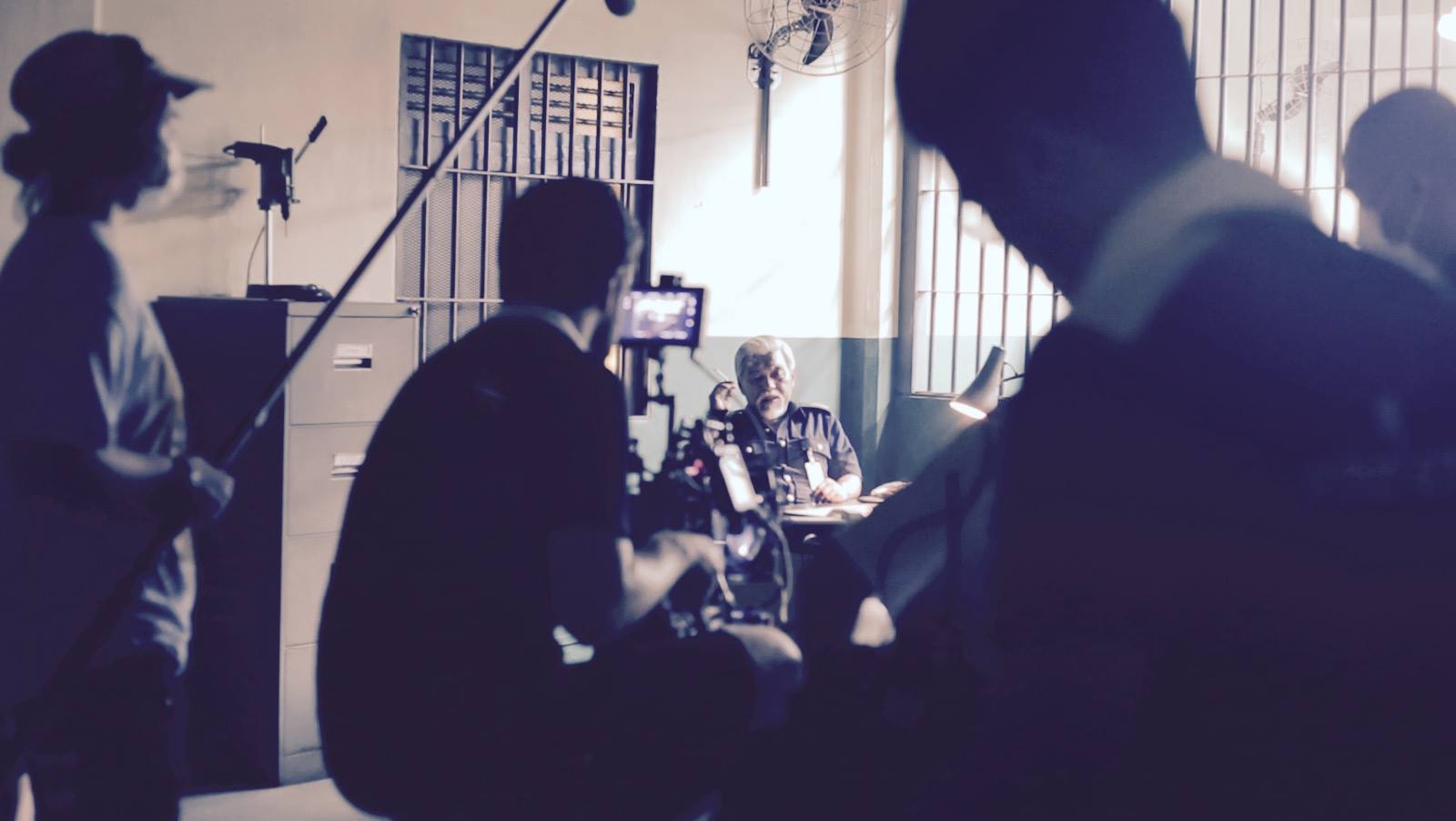 On the set of "Apprentice". Photo via Apprentice's film Facebook page
On the set of "Apprentice". Photo via Apprentice's film Facebook page
This effort, which he prefers to refer to with the term "engagement", began in 2011, after the government conducted its Arts and Cultural Strategic Review under the auspices of the then-Ministry of Information, Communications and the Arts (MICA) — a review that occurs once 15 years.
"We were constantly in conversations with them to let them know our point of view in terms of how films should be made, and in general, educating the rest of the community and the industry as to how to execute a film properly."
Otherwise, he says, award-winning films such as Pop Aye, Apprentice and Yellowbird, should not have been made at all, if they were measured purely by how much money they made.
Boo highlights that credit must be given to the Singapore Film Commission as well:
"Its administration since 2011 to 2012 has been listening a lot to the filmmakers, the needs of the community, and in many ways the aspirations of the community... I think the journey we took from then, time and again, we proved ourselves right, these films are making marks, these films deserve your support and I think through the results of that, we proved to them that these films are deserving of support."
As we wrap up our conversation, I observe that Boo's tastefully-decorated and furnished studio serves a perhaps unexpected and far more fundamental purpose for him — it's his writing space. Boo has mentioned this in passing on several public posts so far, but he is currently in the "very early stages" of work on his next film.
What'll it be about? This is where he turns coy, but he's seeking project markets, distributors and producers, and we'll just have to wait till two years' time to know what it will look like.
But what he does share with us is how distracted he's been — by recurring annual events like SGIFF and Pink Dot, for instance, but in 2018 in particular, it was the marathon that was NDP.
So now that's over, much of his time is spent in this space writing.
But a few things are clear to us, even if what his next film is going to be about isn't: Boo is distracted because he's passionate.
And his passion in the causes he pursues — support of lesbians, gays, bisexuals, transexuals and queers, people living with HIV and indeed, an overall love for Singapore — is one that grew from almost 20 years ago, in the best way he knows how.
Top photo by Matthias Ang
If you like what you read, follow us on Facebook, Instagram, Twitter and Telegram to get the latest updates.
